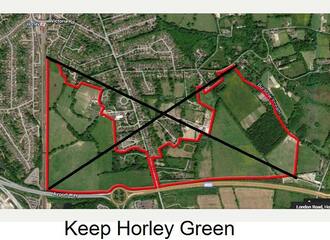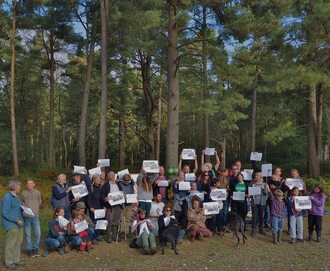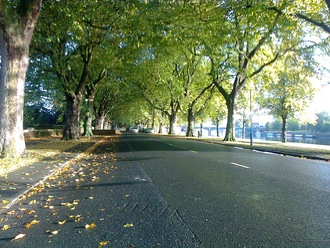-
Stop Global Warming!I, and my children, are rather averse to choking on the effluent of 'big business': there will be NO big business if we all choke or end up massacred in 'emissions' trade wars!10 of 100 SignaturesCreated by Jim Gibb
-
Pesticides and herbicides in YOUR food?To help prevent the incidence of cancers, altzheimers disease, and other "epidemics" of disease that have appeared recently, which may have a connection to the cocktail of pesticides/herbicides and pesticide/herbicide residues which everyone consumes on a daily basis.7 of 100 SignaturesCreated by Phil Whitley
-
BAN E-CIGARETTES IN PUBLIC PLACES IN ENGLANDThis is important because people should not have to inhale the smoke or vapour from these as they still contain nicotine and sometimes horrible smells, (alternative tobacco products, such as e-cigarettes, smokeless tobacco, and waterpipes may cause serious potential health problems, including cancer, because of the chemicals and toxins they contain, ( info from www.cancer.net)) As public spaces increasingly become smokefree, anecdotal reports show some people are using e-cigarettes indoors and in smokefree public spaces, including bars, restaurants and on public transportation. While e-cigarettes do not produce smoke, they do expose others to secondhand emissions. Little is known about these emissions or the potential harm they may cause. Two initial studies have found formaldehyde, benzene and tobacco-specific nitrosamines (all carcinogens) coming from those secondhand emissions. Other studies have shown that chemicals exhaled by users also contain formaldehyde, acetaldehyde and other potential toxins. There is no evidence that shows e-cigarettes emissions (secondhand aerosol) are safe for non-users to inhale, and now there might be some containing cannibis which everyone in the place where they are smoked will be subject to it no matter how little it contains. They are already being banned in Wales and in some USA States, and other places. I have already had cancer and do not want myself or others who have suffered this horrible disease to have to endure the stress these can cause when they are having a meal out in a restaurant, as has happened to me each week, or in the cinema, theatres, etc, also they could make young teens and children become addicted to them as I do not think there is an age limit on them.129 of 200 SignaturesCreated by Kathleen Jones
-
Plant road and central reservations verges with native plants and stop mowing themWe have had petitions about Neonicotinoids but the real problem for pollinating insects is that their habitat is vanishing. As a beekeeper, I know that the most painless way to increase their habitat (and that of many other native species) is for Local Councils to stop mowing road verges and instead use the money and manpower so released to plant them and tend them so that they burgeon with a wide mix of native plants, especially flowering plants. This does need a new way of councils thinking and for such things as the Royal Horticultural Society "Britain in Bloom" contest to massively mark up those who do this and massively mark down those who mow every time a daisy appears (just look around Stockton, here in the North East they regularly get RHS awards and mow everything down - disgraceful!) On the approach to Hartlepool on the A689 the local council has allowed someone to do just this. The result is both beautiful and has hummed with insects all year12 of 100 SignaturesCreated by David Walland
-
Say NO to Chinese Nuclear Plants in UK"A Chinese state-controlled company, with a minority French state partner, will build (and control) massive nuclear power plants at Hinkley Point, Bradwell in Essex and Sizewell. British intelligence agency sources are said to be so concerned that they have let it be known in public that they can never know what hidden capabilities are built into the plants’ software." Polly Toynbee. If these plans go ahead they could press that red button and make the UK a nuclear wasteland whenever they chose, or hold us to ransom indefinitely taking over our government and removing every last freedom we posses. Environmentally speaking our government has crushed burgeoning sustainable energy enterprises to make room for this. Fiscally speaking it is yet another selling off of basic infrastructure that we should own. Whether you believe that this is an environmental, a fiscal or a security risk please sign. Do not hand over the UK on a plate.13,720 of 15,000 SignaturesCreated by Kate Vice
-
Keep Horley GreenCreating the 172 acre business park will mean wiping out green fields, businesses and a restaurant. Bayhorne Farm is a 72 acre farm - currently a well established and large Equestrian centre, the only one left in Horley and just one of the many green areas which will be destroyed and build on! If this plan goes ahead many people will lose their businesses, livelihoods, farm land, and homes. Not to mention the impact to the environment and wildlife! Bayhorne Farm has been farmed by 6 generations of the Whittaker Family - due to recent developments it is now the last remaining SCC farmed land left in Horley. Not only will the development plans create a substantial flood risk to the local area which is prone to flooding - it will be catastrophic to the large arrays of local wildlife who call the farm land and Bayhorne home, some of which are protected, such as, Badgers, Deers, Geese, Owls, Hedgehogs, Adders, many species of Birds, Bats, and other animals. Many of these animals return to Bayhorne EVERY year to the same areas of the farm. We have also been contacted by neighbouring residents who said they have confirmed crested newts. The farm has a large quantity of Bluebells which are protected by the Wildlife and Countryside Act 1981. The farm is also home to a listed building, and the land has an historical interest too. The people of Horley have voiced their opinion - they do not want yet more developments, they want to preserve the very reason they love Horley - the countryside and its heritage - keeping the small town rural feel rather than bulldozing all of the green open spaces we have and replacing them with yet more concrete! Utilise the existing empty commercial spaces. Help us to #KeepHorleyGreen and help us petition against these plans! Find us on Facebook @ Keep Horley Green.4,633 of 5,000 SignaturesCreated by Aneliese Whittaker
-
STOP THE INCINERATOR BOTTOM ASH PLANTIf we do not prevent this contamination even the rich will become impoverished! No Barry Ash Dump - Stop the Incinerator Ash 'Facility' in Barry Town! We’re challenging Council approval of a plan to bring Cardiff’s incinerator ash to Barry -75000 tonnes per year on unused dockland close to homes and businesses. They would not simply dump the ash but extract metals, then aerate the ash in open-air heaps and grade the matured ash into building aggregate. Not only are these operations very dusty, but the dust is toxic, with lead, cadmium etc. The strong winds across the open site will carry scarcely visible toxic dust particles to many residential areas around the Dock and into the town center. Other incinerator ash sites are in rural locations, far from housing. Our community is the first to have it imposed on us. The regulators are concerned about harm to bio-conservation, but not about humans! Our lawyers are up to challenging this precedent that would dismiss the special health hazards and toxic nature of incinerator dust. The Vale of Glamorgan Council had to check risks to health, but failed to do so. They had asked Public Health Wales for their view on incomplete materials. A non-reply was used as excuse for ignoring risks to health of inhaling and ingesting the incinerator. Infants are especially vulnerable, being more sensitive to toxic metals and ingesting via. finger-licking. This crassly ignorant, almost criminal decision by the planning committee on 3rd Sept. 2015 can only be quashed by Court Order. Leading environmental lawyers Richard Buxton have lodged a case on our behalf. As well as part funding under Legal Aid, the community has to raise funds several £1000s towards it. Please contribute through:- http://www.gofundme.com/a97hmjnu Please help save our community and town from this insidious threat !255 of 300 SignaturesCreated by Shirley Taylor
-
Protect the Green Belt in SurreyFree open space is important for everyone, for town dwellers and those living outside towns. The Green Belt provides that free open space between built up areas. Surrey has areas of outstanding natural beauty which will be destroyed by excessive development around towns that will happen if Green Belt land is released for housebuilding7 of 100 SignaturesCreated by Sandra Simkin
-
No Underground Coal Gasification on TynesideUCG is dangerous to the land, sea, air and people.66 of 100 SignaturesCreated by Martin Collins
-
Fossil Fuel Free Mole ValleyOil & gas companies are looking to explore for more fossil fuels within Mole Valley even though Climate Change scientists and most world powers demand that we move away from our dependency on them to renewables. To be looking for more fossil fuels at a time when we have already found over 5 times more fuel than we can potentially use is utter madness and criminal.1,160 of 2,000 SignaturesCreated by Chris Crook
-
Keep Victoria Embankment free from parking charges and orders.Victoria Embankment Nottingham is "not for profit land" has been given to the Citizens of Nottingham and the Locality (and visitors from further afield) for their mental and physical health & well-being, somewhere to escape all the pressures of life, including time and financial pressures. This Breathing Space should remain an oasis of unpressurised serenity. Despite some cars abusing the facility there is still plenty of space for Park Users to park up free and enjoy the simple Green Spaces. This highly protected Covenanted Land, all Gifted to the City, must be preserved from becoming another Income Generating Scheme.680 of 800 SignaturesCreated by Jonathan Hughes

-
No to new nuclear power stations in the UKSo we do not leave a legacy of more nuclear waste to our future generations75 of 100 SignaturesCreated by Kerrin Doyle
Hello! We use cookies to improve your experience by providing insights into how the site is being used. Find out more.












